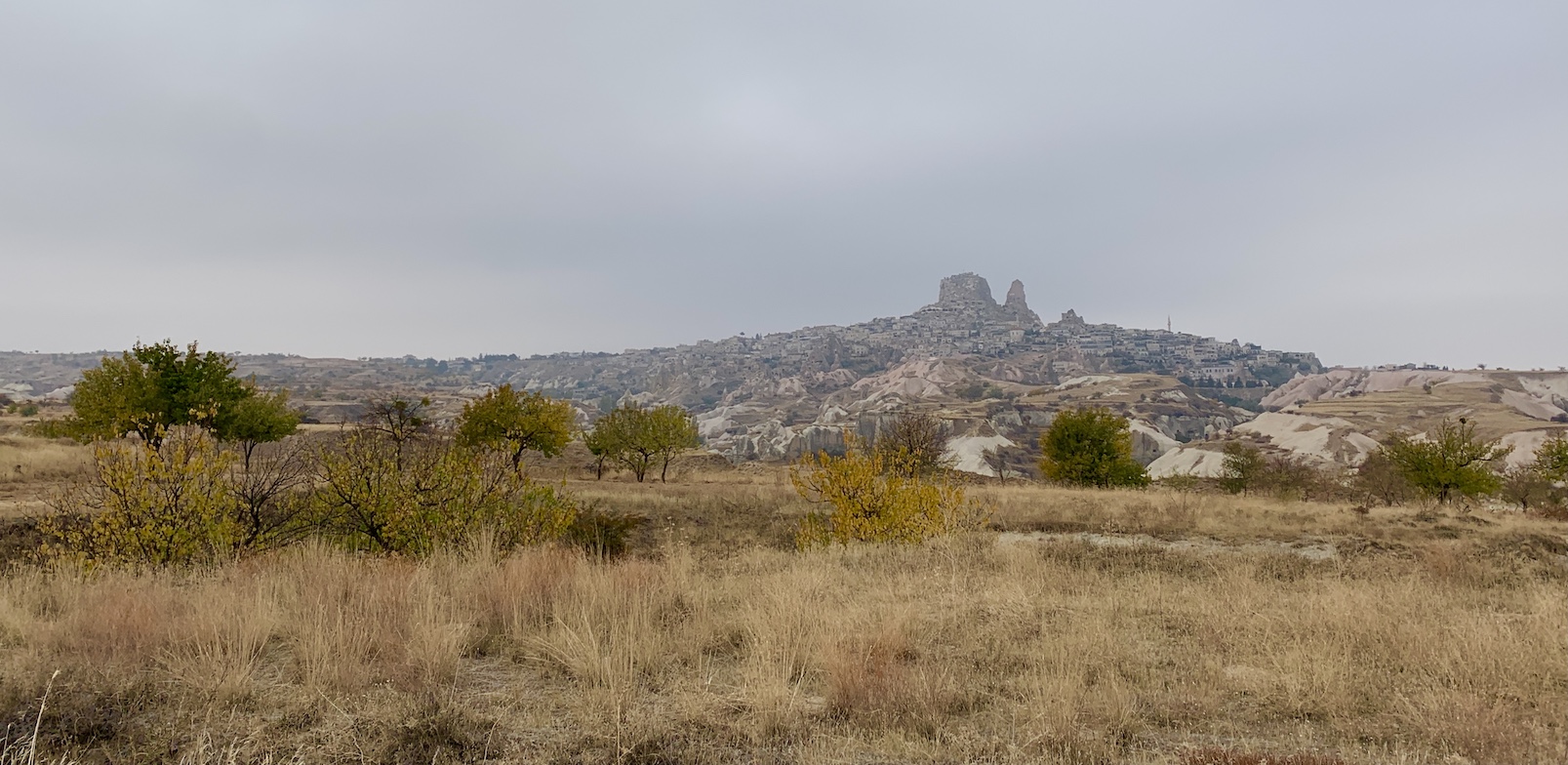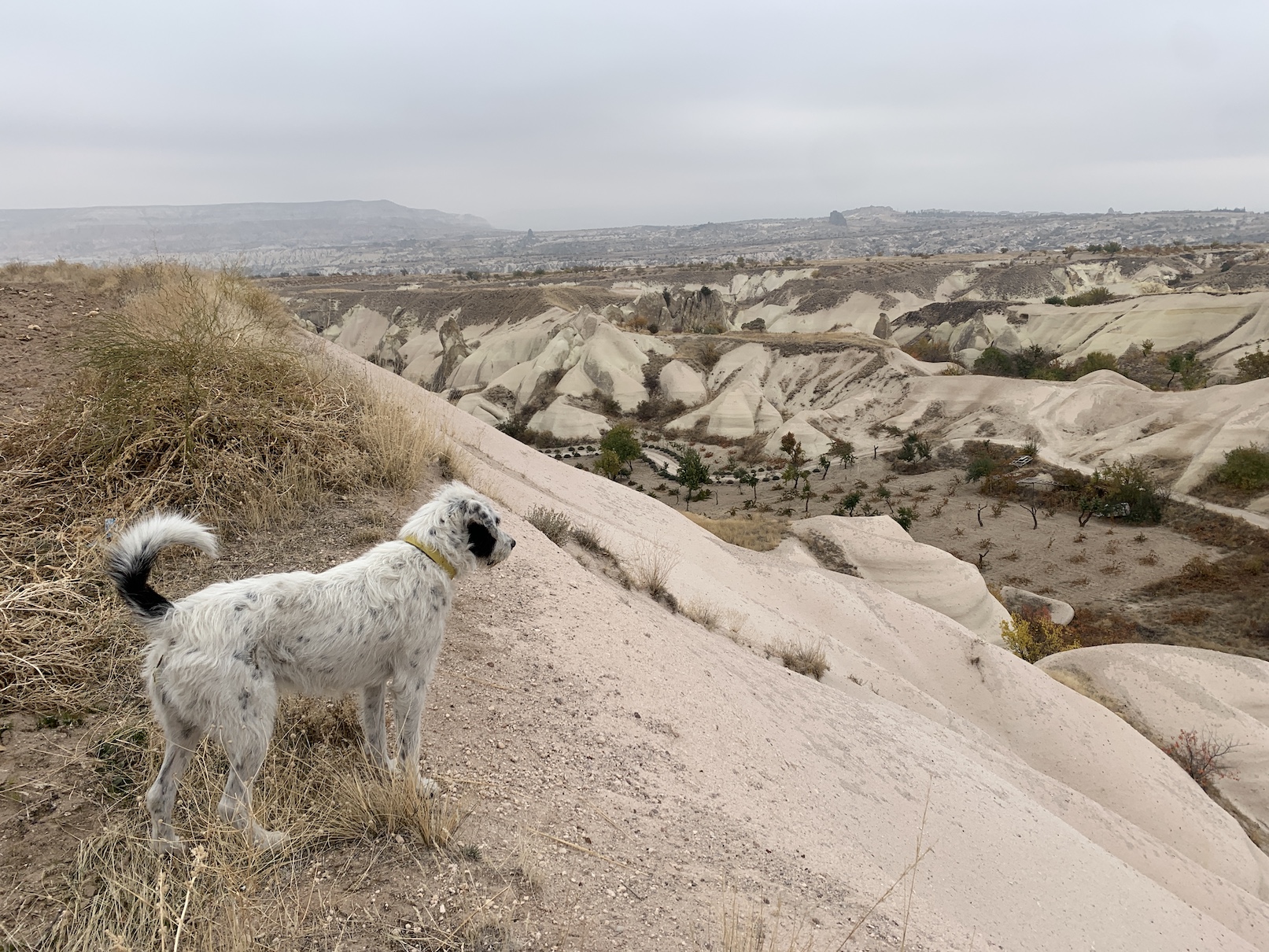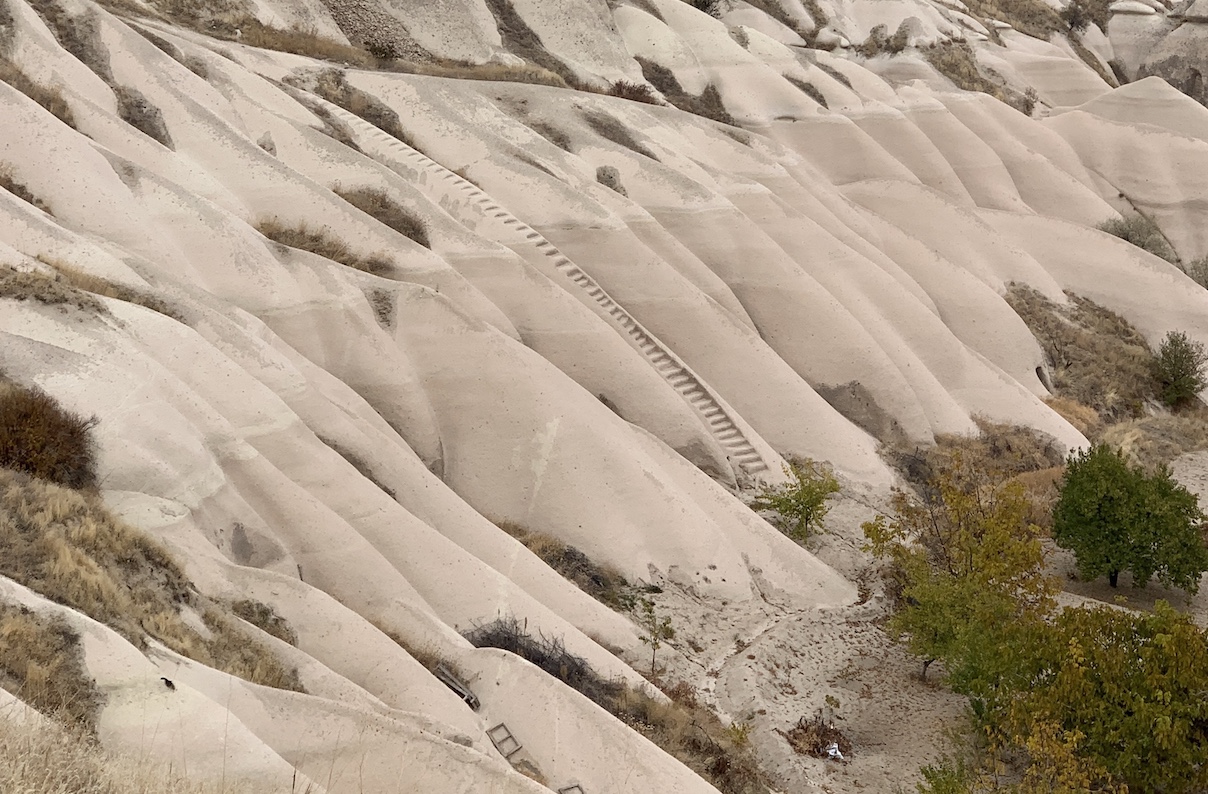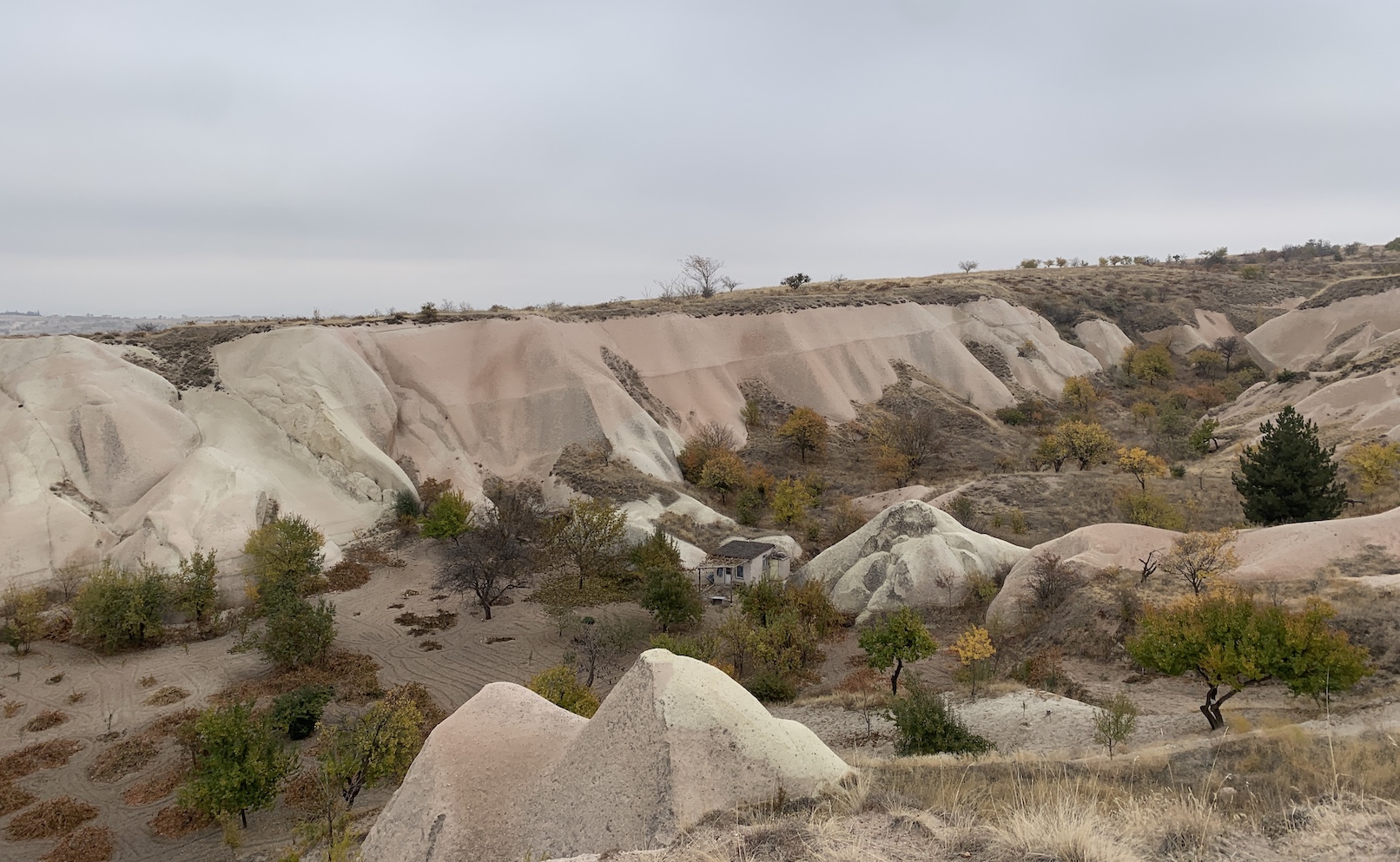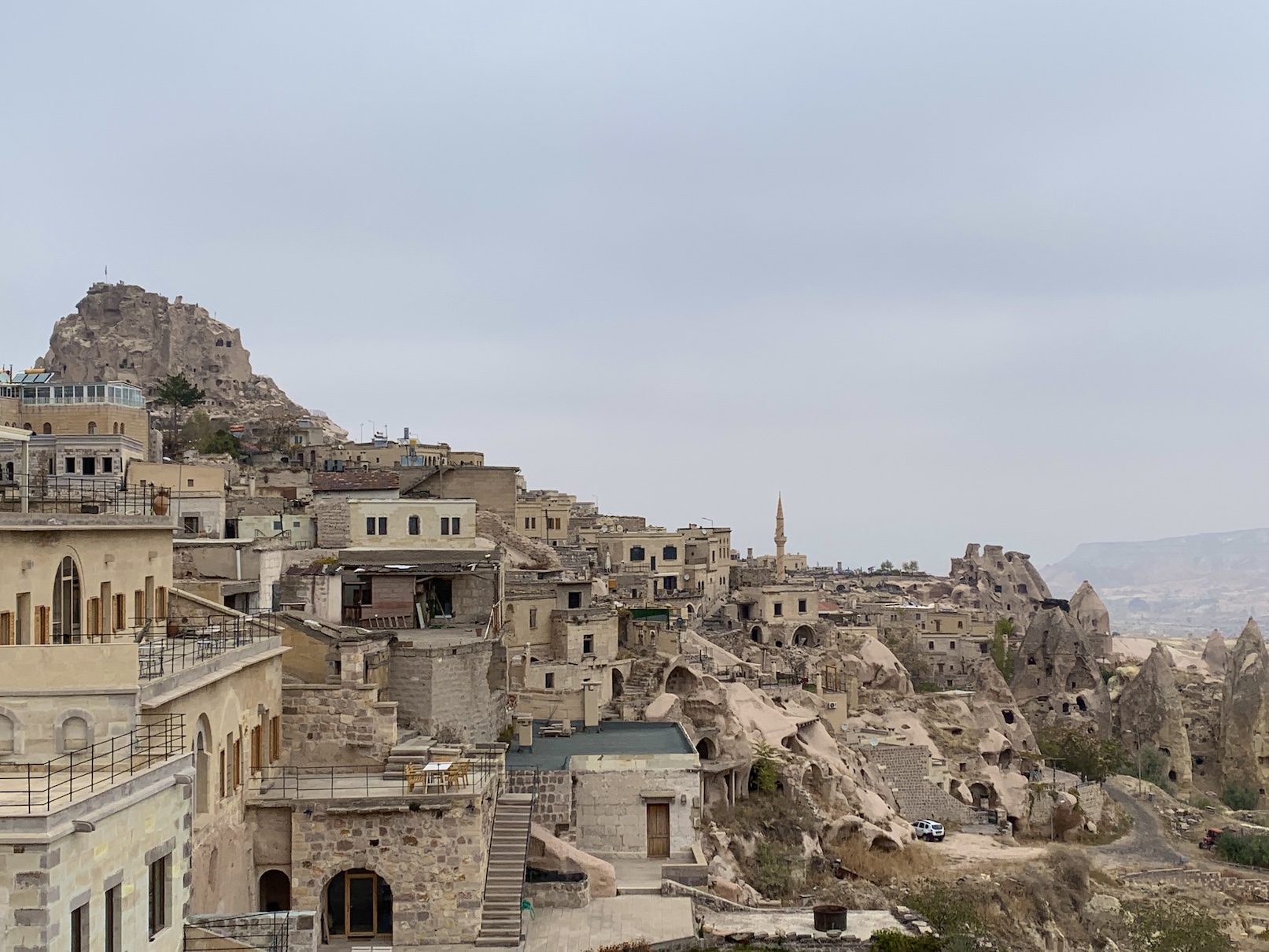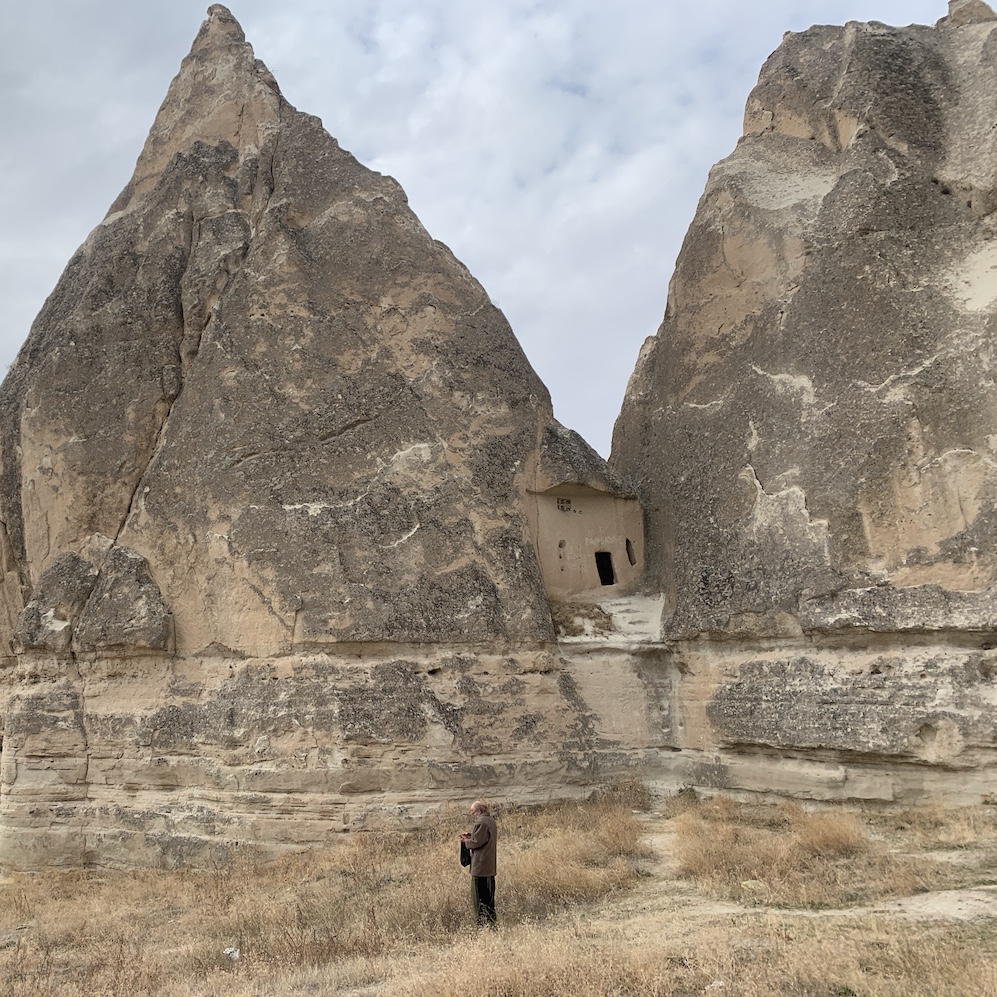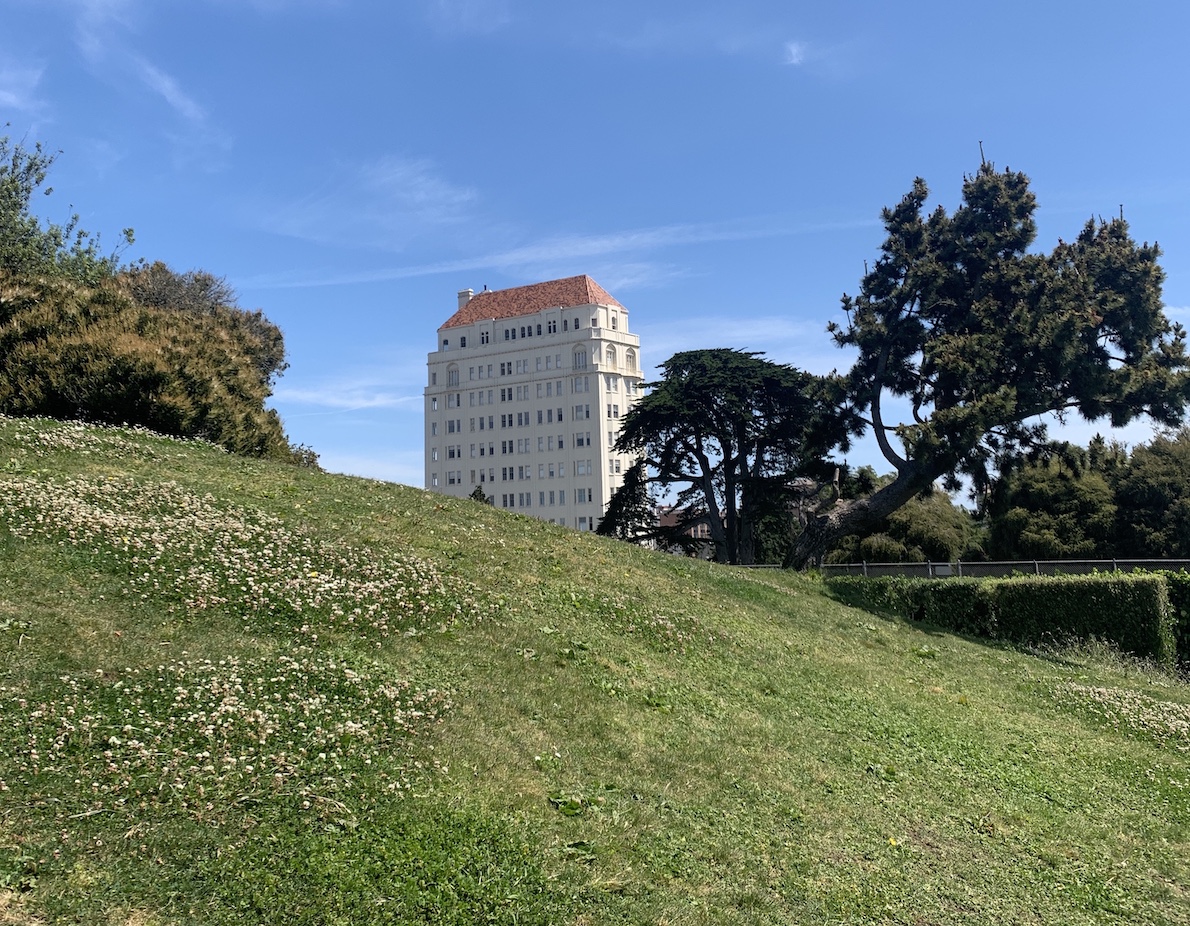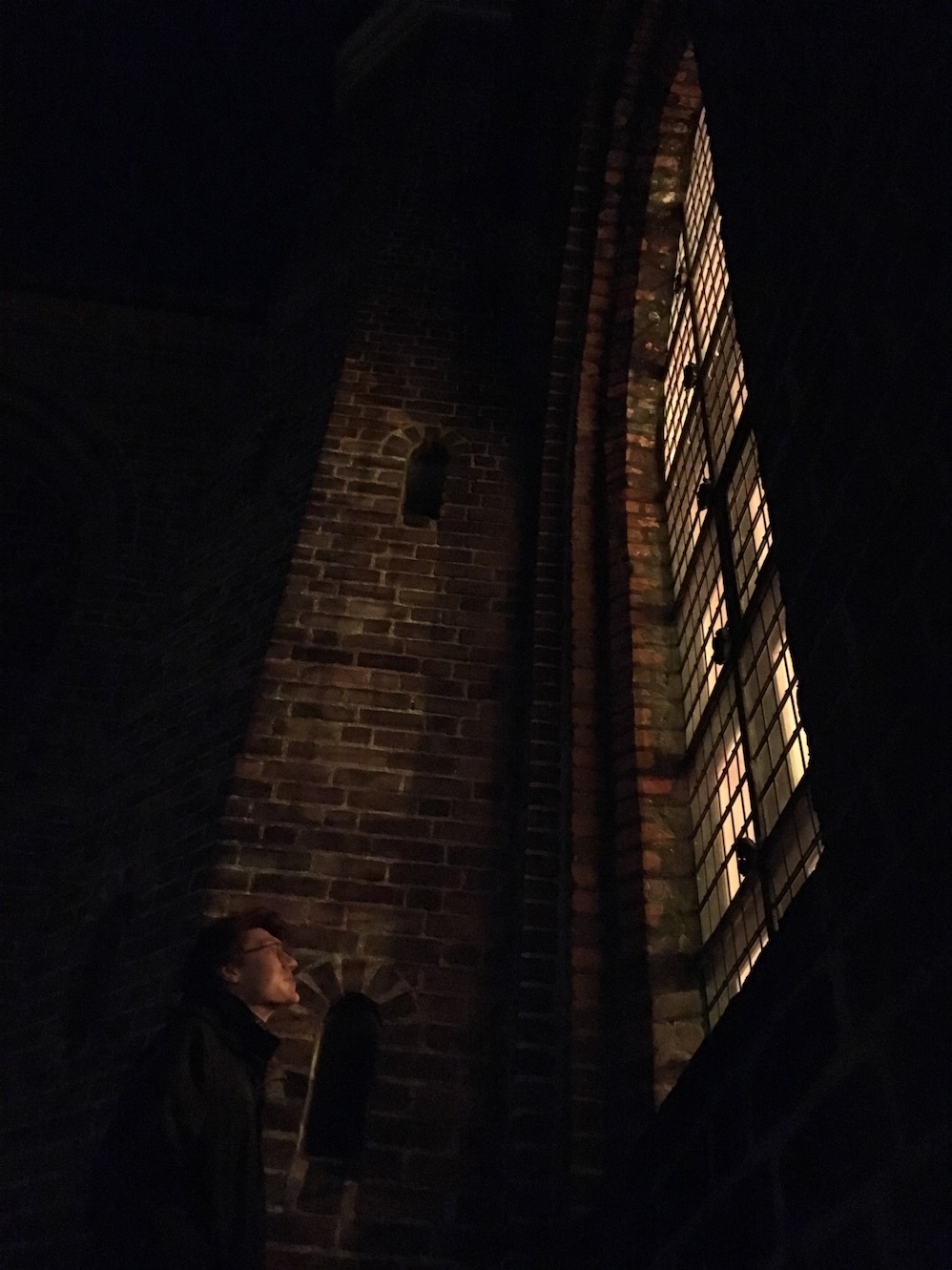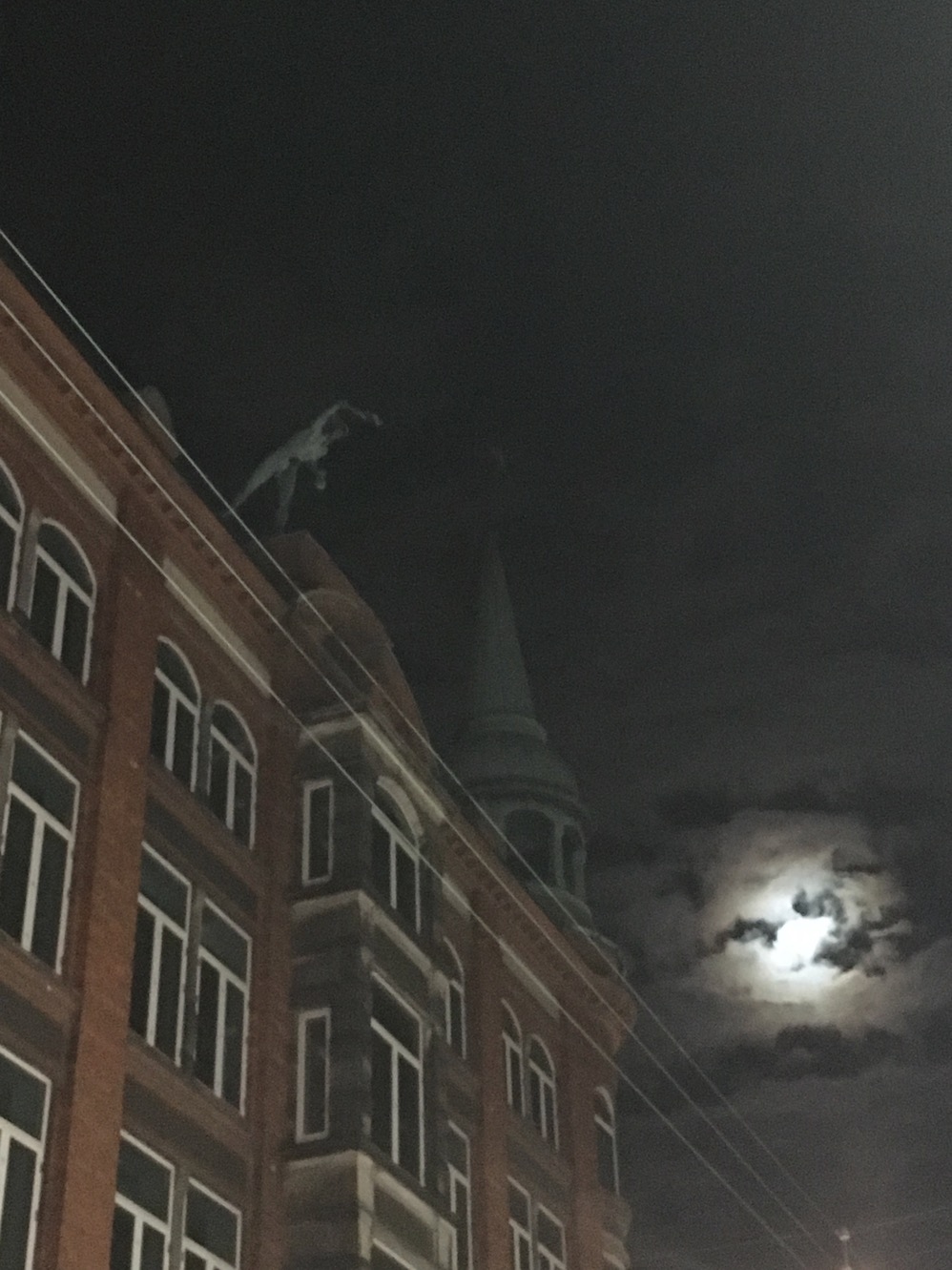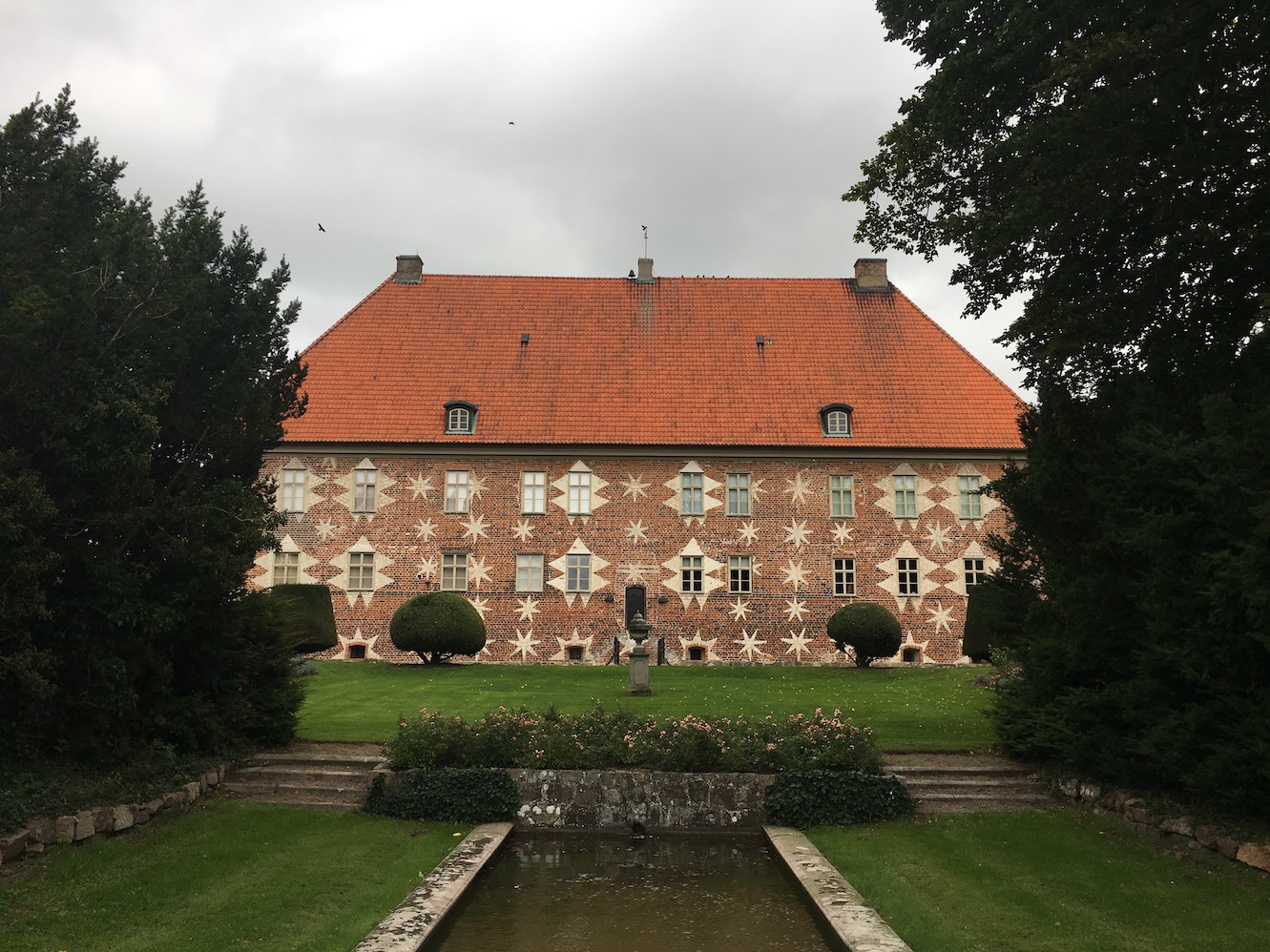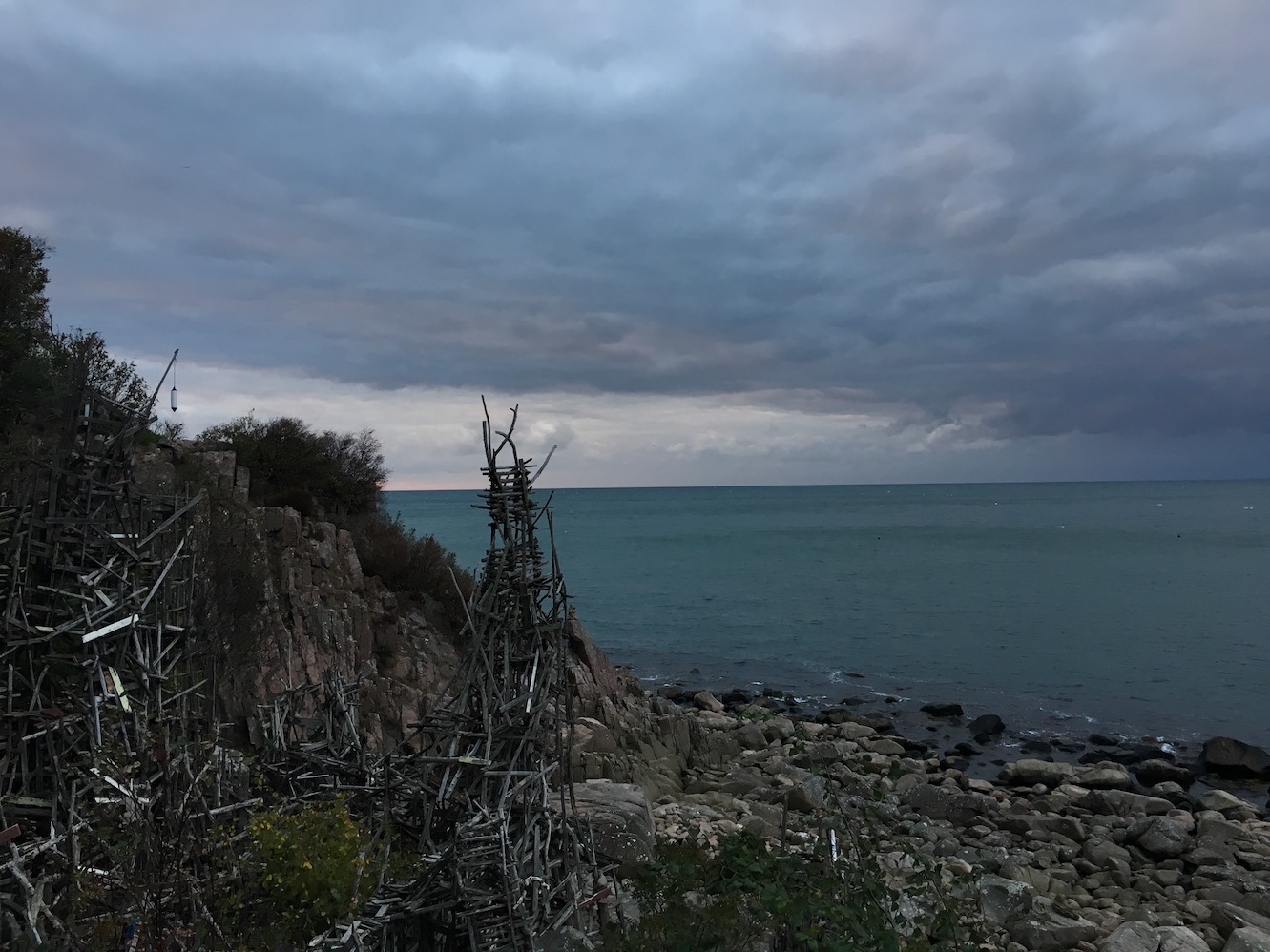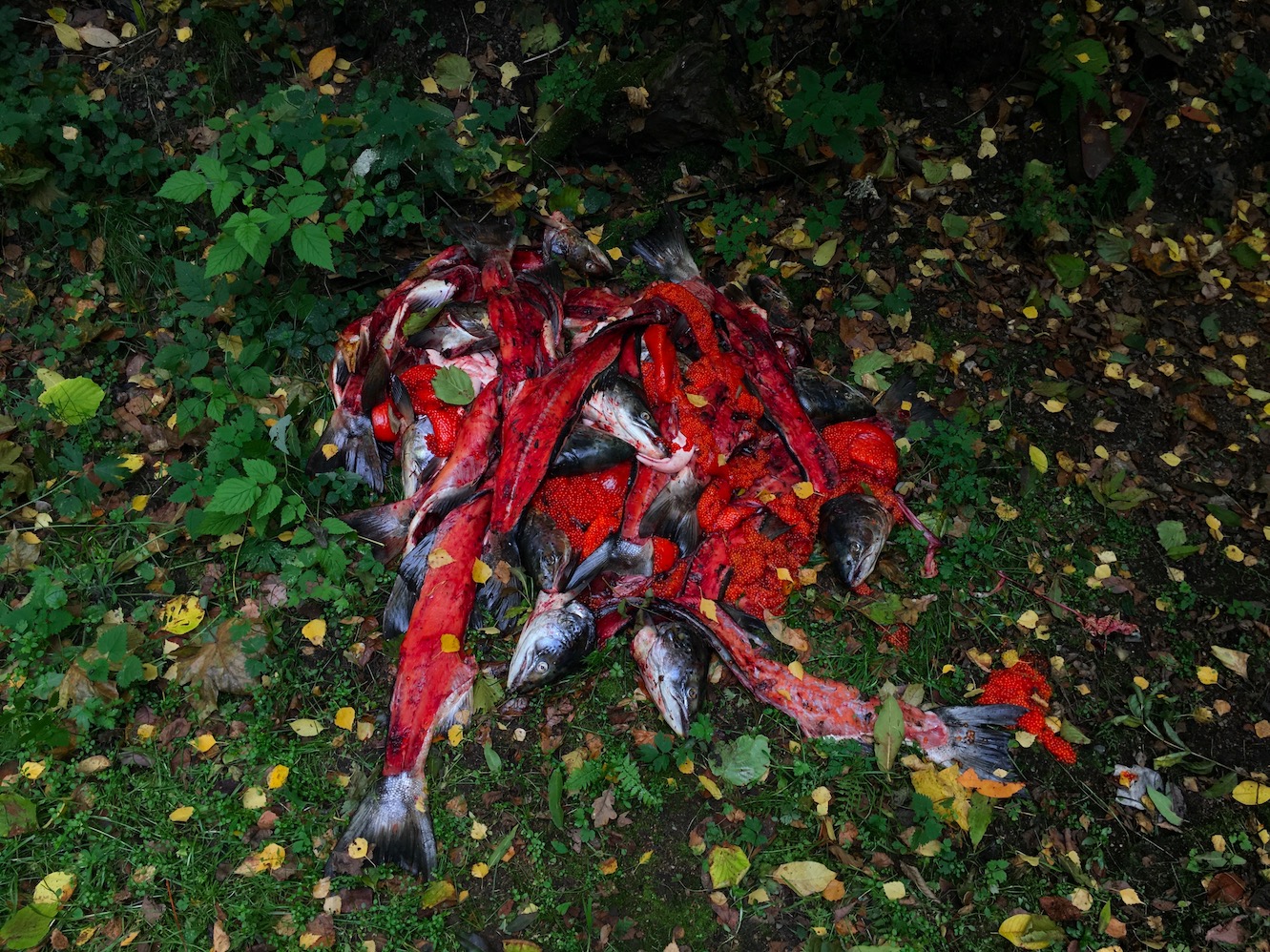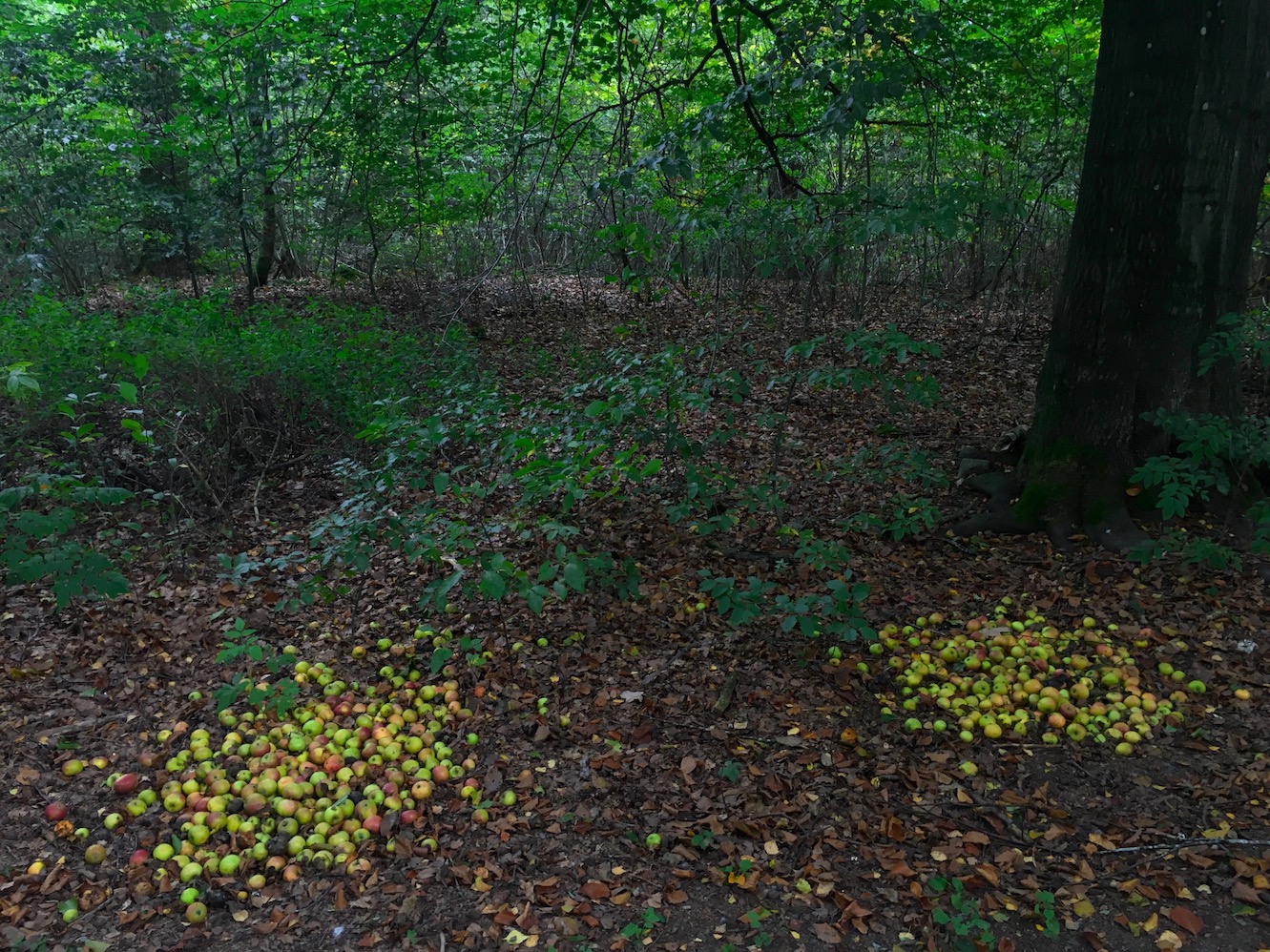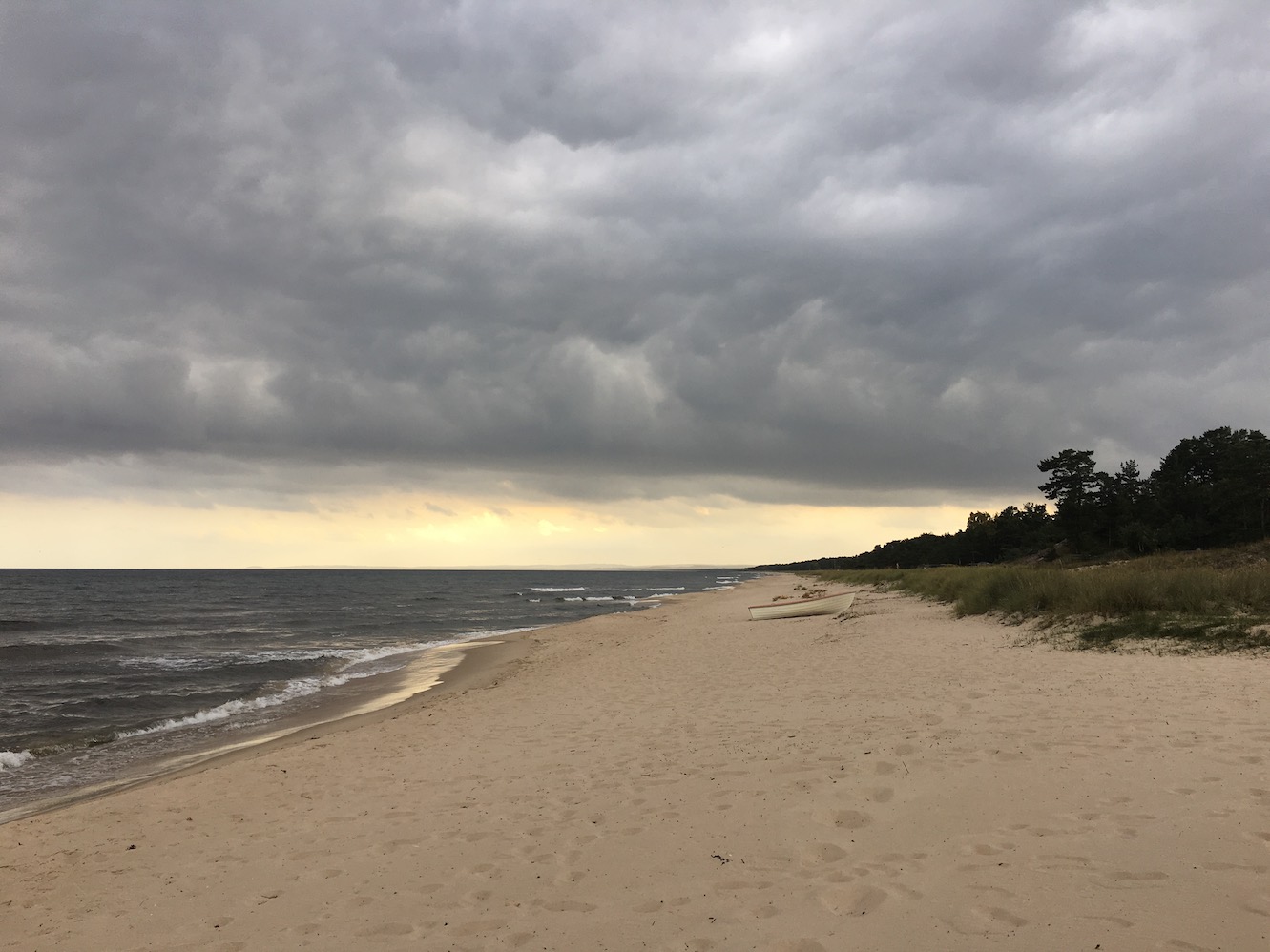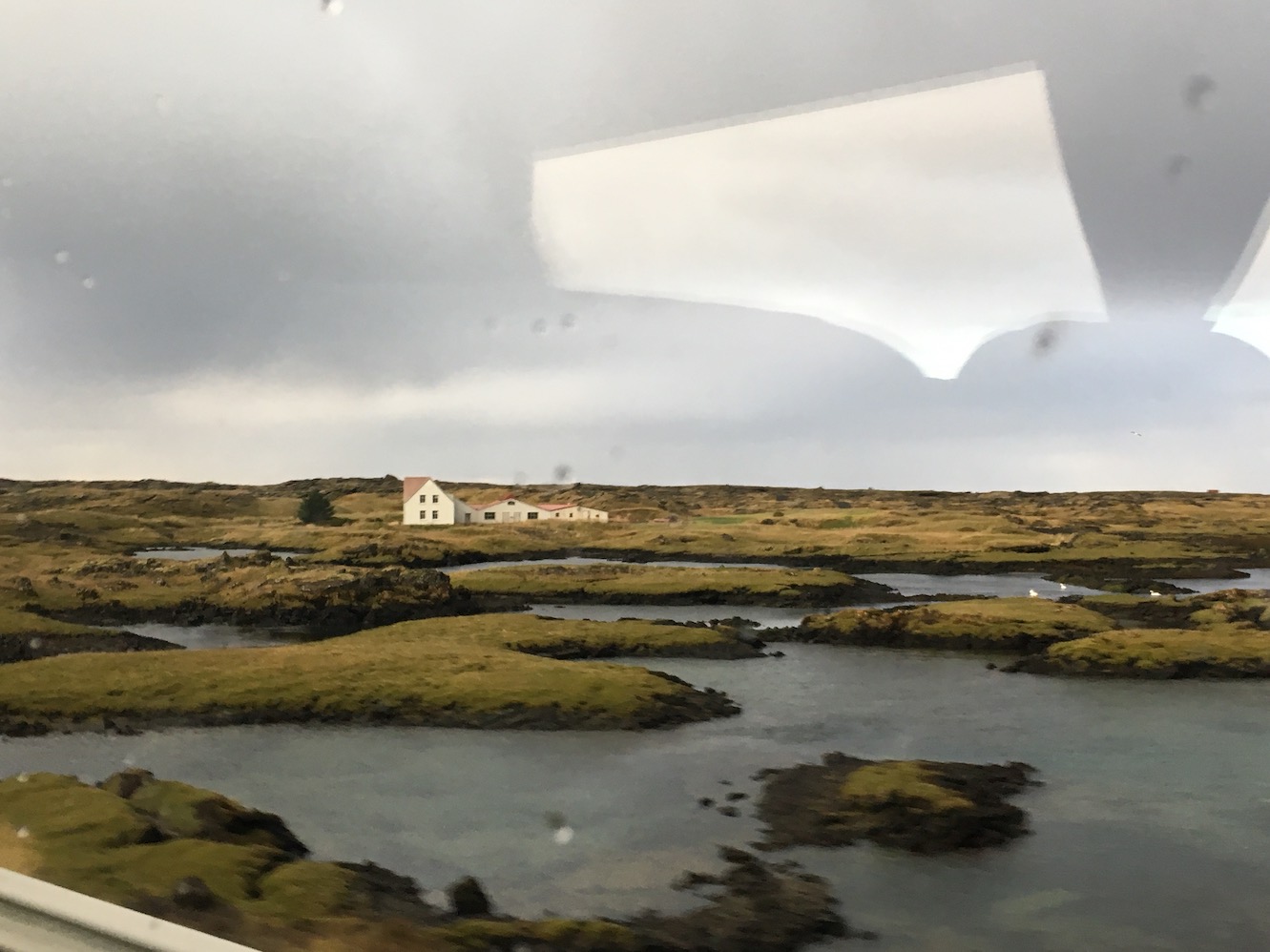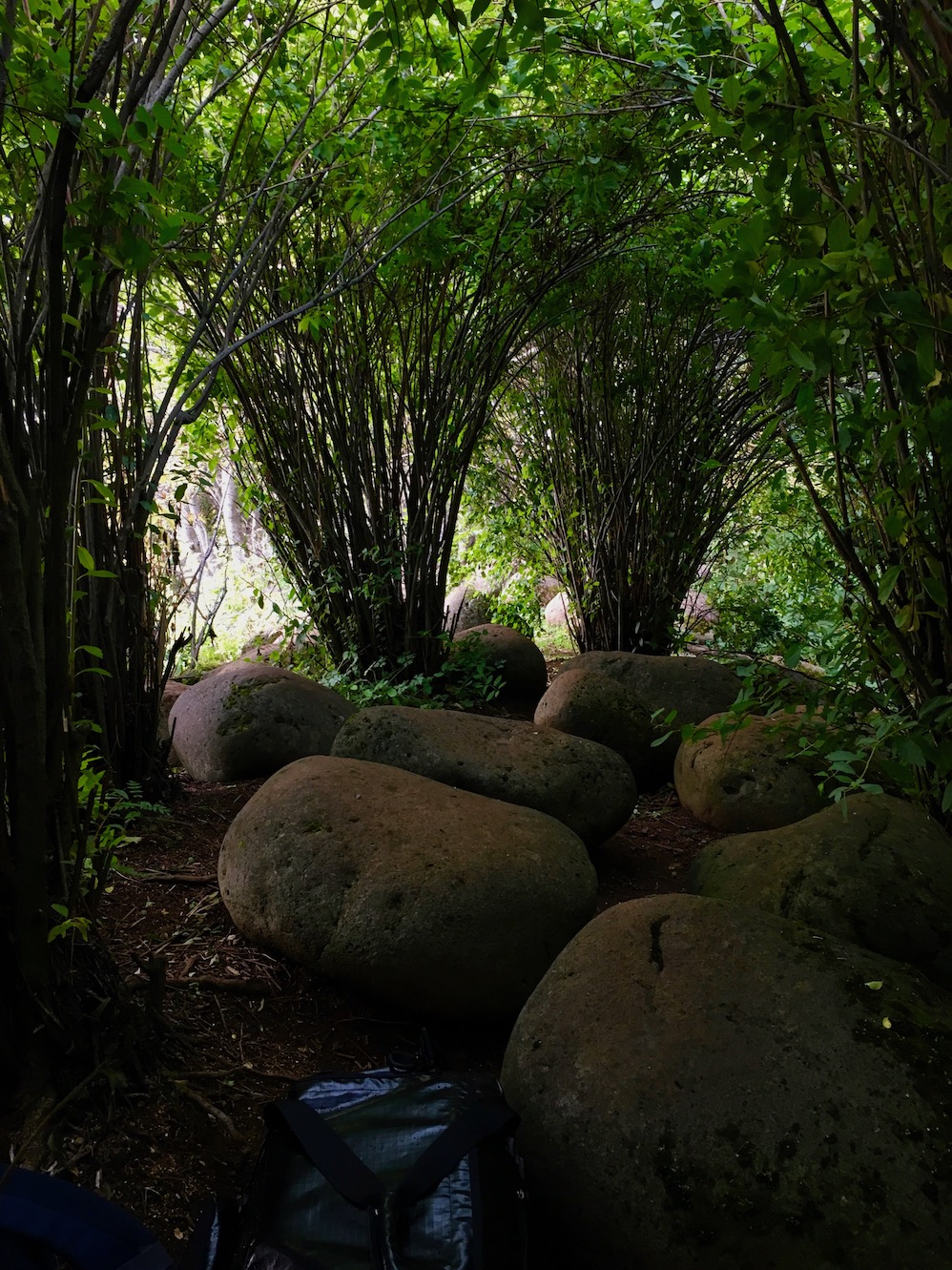They had cracked down on the hooning by the time I arrived.
Abdulrahman—left foot darting from gas to brake like he was working the pedals in an arcade, right leg swung out to straddle the center console—rarely looked up at the road as he drove, gathering from each glance enough information to last another five minutes. Instead he looked at the one phone in his hand or the other mounted on the dash, where a live feed of crowds jogging around the Kaaba played under a Facetime window of his wife, who spoke animatedly to someone off-screen. Google didn’t know “hooning” so I made it say: “I came to Riyadh because of that video where the Sauds are hot-swapping the tires on their Land Rover, the whole thing kicked up at an eerie angle on its two passenger side wheels, swerving across a dusty highway.”
Abdulrahman knew the one. His phone replied: “Oh yes man. Welcome Saudi. Now? That’s not.” Then he was sounding out the names of different departments at his university, drawing us back in one of those conversations that even the text-to-speech button can’t resolve.
“College of Food and Agricultural Sciences."
“Yeah, that’s a classic one.”
A two minute pause while he typed furiously on his phone, and then his wife turned onscreen to interject: “College of Sports Medicine.”
On every horizon another perfect novelty of architecture rose from the desert floor, completely divorced from any context—only fresh, enormous, menacing. In the center, four immense cubes of cyan were lit up like fish tanks, streaked with coral letters that darted across the gaps from one to the next. Then Abdulrahman was shaking me and shouting “Brother, brother: King-dom Tow-ah!” and I looked up to see the Eye of Sauron soaring into the night, bathed in an acidic green.
Driving in Riyadh reminded me of home. You can cross six lanes of traffic in a single erratic motion, the turn indicators ignored as vestigial, atrophied from disuse—but it’s just as common to go half the speed limit, drifting back and forth between lanes like a game of Pong, or to pick a lane line and ride it for miles like a monorail fixed to its track. Through it all, the tires squeal against the night-heat of the road, lending their driving a sense of continuous, unskilled drifting. Sauds drive like people in Tokyo walk: bacterially, swarming and splitting and being reabsorbed, subject to internal rhythms undetectable by the foreigner, leaving gaps in the millimeters but somehow never colliding.
While passing the pinkish high-walled compounds of the diplomatic quarter, we came upon a pack of lifted Tacomas doing burnouts in an intersection. When the light changed, one broke away and skidded into an astonishingly precise 180 degree drift through a gap in the median that looked smaller than the wheel base. It entered oncoming traffic at around 90—facing the wrong direction, splitting lanes, forcing everyone to careen out of the way—and then dove into a parking spot in the adjacent strip mall. There were a few distant shouts of “mashallah”, but not a single person honked.
Abdulrahman left me at the King Abdullah Financial District, deep enough into the night that I’d begun to appreciate the heat. By way of parting, he thrust his phone out of the window and let it say “You will like.” It was an island of grassy hillsides terraced with meandering paths. At first it seemed like a golf course, but then I looked up and saw the wall of glass—jagged like the shards of some incomprehensibly large craft that had disintegrated upon entering the atmosphere. A student had said it was built it to be the world’s largest finance center, connected directly to the airport by a monorail to let the bankers come and go without ever technically entering the Kingdom. But the foreign banks, worried about capital seizure, had never showed up, and now most of the buildings sat empty, the monorail incomplete—leaving the area quite literally inaccessible, for all purposes a walled off garden, with cars forced to enter through a series of improvised gaps that seemed to change daily. Otherwise KAFD cut at the edge into ten lanes of freeway and then open desert. If your car went to yesterday’s entrance only to find a military barricade, you were out of luck. Many times I ended up jogging along the shoulder of the freeway around the island’s perimeter, ducking when I could into the shelter of the planted verge while cars swerved in close to get a better look and then skidded off. The whole time reminded of Cymbeline’s Britain: “ribbed and paled in / With rocks unscalable and roaring waters”.
![[kafd1.jpg]]
I walked for hours that first night, then sat in the back of Ashjar Cafe, a miracle of topology, each of its terraces fixed at improbable angles to a central pyramid of marble. Every few seconds, mist was shot from fake trees to form a halo around the structure, where it quivered and then evaporated, having cooled the air imperceptibly. I was eating a perfect cube of “honey cake”, which I was prepared to admit represented the culmination of a certain strand of human history: its crumb coating a demonstration of some dark new materials science; its center so soft that it fled coquettishly beneath the tines of the fork until pressed up against the plate where it gave in with a sudden quiver and was impaled, surging up around the fork in an appallingly lewd gesture that could only be described as submissive.
![[kafd2.jpg]]
I was laughing at the cake and trying unsuccessfully to strike up a conversation until some time before dawn, when I walked back to campus. With no sidewalks, I had to dart across eight lanes to reach the oasis of a median, where I could move in relative safety between the palms. The occasional Jag swerved over and rolled down its windows so that the blinding sleeves of a starched thawb and two iridescent cuff links could lean out to shout “Mashallah, welcome Riyadh”. While passing a construction site, little more than a fenced off hole in the sand, I was stopped by a half dozen security guards dressed like Confederate reenactors and deputized to watch this specific corner of rubble. We had no language in common so we just stared at each other for a few minutes until I walked away and they returned to their folding chairs. That night I dreamed that a crowd of locals pursued and surrounded me at Ashjar, and all at once they ripped off their veils to reveal the faces of my elementary school classmates—as if Saudi Arabia, the entire country, were one elaborate surprise party.
![[arch.jpg]]
I woke up the next morning with a burn across my shoulders and realized that I had left my blind open a crack. This event sparked an antagonism toward my room that matured over the coming weeks. I became convinced that I could feel the heat even beneath the air conditioning, like an odor covered up rather than eliminated, lingering to mix with everything else in the room.
I had been hired to teach a summer course at a university—one 45-minute lecture each afternoon, the sort of schedule I had dreamed about for years. I tried to understand this period as one of those miraculous pockets of air you occasionally encounter in life, a chance to breathe and expand, but it resisted even this categorization. I planned to finish a novella about London, but this was immediately derailed as I started walking through the night and taking notes on Saudi. It became a period densely filled with its own content.
At the edge of downtown, an enormous marble Qur’an marked the campus entrance. Then there were miles of winding roads through empty desert, guard posts where they would stare skeptically at you for a few seconds before waving you on, until finally you reached a series of academic buildings the scale and color of the valley of the kings. All of it half finished as if still rendering. The lobbies of the housing complex like chasms carved into pale stone, arranged around fountains that ran all night, with a sharp vaguely septic scent seeping up from the dirt between the succulents.
![[campus1.jpg]]
![[campus2.jpg]]
![[campus3.jpg]]
![[campus4.jpg]]
We were given a room full of PS5s but they were still rolling out long sheets of grass to cover up the sand as we arrived. It was like a country produced in that giddy moment in strategy games when you’ve suddenly come into the money all at once so you go on a spree of upgrading skills and building towers, even straying to the bottoms of the most obscure back menus to find more things to buy, limited only by how fast you can click. It was as if this had all happened and everything was still coated, months or even years on, in the dust of its own installation.
Lunch was served each day in a conference hall coated with thick sheets of plastic. You would arrive at 12:58 to be told by the caterers, “Lunch 1. Wait 1.” Then after you waited the two minutes, the very same man would sneer and say “Lunch 1:30.” They seemed to enjoy this half hour, passing it either by grinning at us with open mouths or by taking long videos of the buffet, walking slowly from dish to dish to hold the phone camera so near the plate that it nearly touched the mounded piles of wilted lettuce and feta. I asked someone from the university what the videos were for, and he seemed confused what I meant. “Nobody trusts anybody. Everything gets a video.”
The plumbing worked for the first evening and then never again. Once I heard a triumphant cry from outside my door and ran through a sulfurous cloud to find the fountains in the lobby erupting with fresh shit. One of the smaller students, usually hesitant with his English, grabbed my arm and yelled, “Sir, the fountain runs with excrement!”
A week in, a declaration was issued: the students needed a “coffee lounge.” It was unthinkable that they didn’t have one already. Calls were made and three of the largest La Marzocco espresso machines you could buy, a purchase surpassing 50 grand, were flown in and dumped on the floor next to a chalked-out outline of a counter, where they sat for weeks, partially unboxed and forgotten.
Whenever I spoke to anyone in a position of authority, I sensed their immense frustration with these circumstances: how, despite the unlimited oil money and an unquestionable political will, they were still held back by the absolute incompetence, laziness, and greed of their countrymen. How everything freshly completed was already drying out and crumbling under the sun. As far as I could tell, “Inshallah” was the Arabic “mañana”; it seemed to mean “maybe tomorrow” or “it won’t happen.” Instead, things occur two hours after they are scheduled, or three days later, or often never at all. The effect of this is in contrast to the remarkable speed of Riyadh’s growth—it seemed to grow even in my time there—which made the city feel little more than a luxurious coating applied to the desert: like something that would flake away at the slightest touch. Whenever you looked underneath or behind things, they were sandy and unfinished. Restaurants as lavish as Mayfair would reliably have horrifically clogged toilets, the walls and ceilings sprayed down with the bidet hose as if the previous occupant had been putting out a grease fire.
I hated the days but took immediately to the nights, when walking in the outdoor malls in the low 90s felt like swimming through luxuriously crafted channels of perfumed air.
The Saudis seemed to contain many ethnicities, varying widely along nearly every physical dimension. Among the men there were two distinct classes. The first were darker and enormously fat, often found with their wives at cafes along King Abdullah Road stuffing themselves with “cake sets”: a multi-course meal of desserts paired with sweet coffees and shisha. A particular favorite for the “entree” was a stack of crepes sliced into long strands like pasta and tossed with chocolate sauce. The second were the man-children—pale, effete, sharp-chinned guys who wore their thawbs so tight across the chest and shoulders that they seemed impossibly shallow, reduced to two dimensions, almost disappearing in profile as they walked by twirling their prayer beads.
They all stalked around the strip malls at night: mile-long rows of cafes, three stories tall but often containing only one level, producing spaces so vast that owners would, as if for novelty, build further structures inside or add small private mezzanines like crystal vessels sailing up into the atrium. Gaudy gold fixtures clashed with loud rap that none of the locals understood to be obscene. It was as if Seoul had finally lifted off from the Korean Peninsula bound for the stars, only to crash tragically in the desert, prompting a cargo cult around the “cake set” among the bedouin tribes driving their jeeps between piles of crystalline wreckage.
![[malls2.jpg]]
![[malls3.jpg]]
I was enchanted by all of it—by how lively and tasteless and doomed it all felt, and by the nocturnal sitcom of the foreign faculty walking around and commenting on it. Academic programs abroad are usually social mausoleums, staffed by the inert and over-educated, but the faculty here were surprisingly colorful. When asked why they came, few could say. It paid, but I knew for a fact they could make more in a week of private tutoring.
There was Fergus, economist and Dubliner, attenuating out from a narrow chest, his brows and mustache fixed in a thoughtful arrangement under the sort of hat worn on tropical expeditions. He committed early to going native, quickly acquiring a thawb and four or five Arabic phrases that he deployed with impunity between the detonations of his high barking laugh. He split his “Mashallah” into three lusty syllables like “ooh la la”.
Public health campaigns across Central Asia had left Luis sleek and compact. He could give you the precise manifest of what he carried—five shirts, three pairs of trousers, two pairs of shoes, and a steel Casio watch—and had the face of a cherub or one of those benevolent forest creatures that dress the princess in early Disney films. He was constantly smiling, boundlessly graceful and generous in conversation, and spoke the sort of RP earned over 7 years in Oxford despite having started life in a state school in New Malden.
Macdonald was a Zimbabwean Rhodes Scholar, an irony he used to great effect while issuing stentorian opinions in the style of royal decrees. Anything Macdonald liked—jokes, observations, even a nice pen—would earn a long admiring nod and then a firm slow handshake. “I like that. I like that very much.” Roused further, he would shout “There we have it! Theeeeere we have it!” He pressed the British professors to their limit with jokes about race, about “Rhodes must fall”—pressed his points far beyond the London norm, where people change topics five minutes before offense might occur. He loved most his running bit of guessing which of the faculty had gone to private schools and arguing with those who claimed they hadn’t. He quickly labeled Luis “Deputy Head Boy material” and asked incessantly about his salary at the WHO, leaving that poor polished diplomat to squirm, deferentially faking laughter as he issued the harshest reply available to the contemporary Brit: “These are pretty personal questions you’re asking, Macdonald!”
I became nocturnal to avoid the head, returning when the malls closed at 3 or 4 in the morning to walk the raised corridors of campus, which were flanked by rows of stone columns with different departments radiating off a central spine. On the floor, pale pink and white tiles sparkled in geometric patterns under the flood lamps. The buildings were left unlocked at all hours and characterized by confusing parallels, each room a mirror image of somewhere else on campus. Academic departments would seem empty for the first half hour you explored until you startled some South Asian man in a distant hallway, sleeping on a woven mat with his sandals kicked out ten feet away on the polished floor. Large touch screens mounted in the lobbies played live readings of the Qur’ran by sleepy looking imams stuck on the night shift.
![[night.jpg]]
![[night2.jpg]]
![[night3.jpg]]
![[night4.jpg]]
On every empty bit of wall, they’d put up portraits of haggard conjurers.
![[portraits.jpg]]
I took to walking to my lecture theater earlier each day, until I was arriving four or five hours before class began. The entrance was at the top, but the light switch was at the bottom, down a long row of carpeted steps with an unpredictable variation in rise and run. By the time I groped my way to the desk, I would usually just sit there in silence and darkness until the students arrived, enjoying the atmosphere of an industrial walk-in fridge while the call to prayer played over the intercom.
For my first lecture, I got “Jabberwocky” up on the screen. A low murmur of concern. The poem had triggered some Islamic sensory organ that spasms in the presence of the potentially haram.
“What language is this?” I asked my 200 young men.
One kid did a two-footed leap from his seat. “Brother Doctor, that is Latin!”
When we spoke about metaphor, another volunteer stood up with a military straightness and said, “The teacher is like the wise man whose stride covers the desert.”
I had no idea what to make of them. They were unruly but overly formal, incredibly thoughtful but way behind others their age and class in other countries. A regular group started attending my office hours beside the fountains. They all wore wispy little beards and oversized designer glasses that made them look like miniaturized adults, shuffling toward me with very precise questions about translators of Proust. One spent half an hour convincing me that the Genealogy of Morals was Nietzsche’s closeted defense of Islam (“No, you will soon understand, inshallah, that…"). Some practiced the sort of numerical theology common among 1st century Gnostics, seeing in the number of times the Qur’ran repeated certain words, and in the distances between them, a structure onto which they could arrange their study of advanced mathematics.
One of my favorites, perhaps the youngest in the program with thick glasses and a powerful air of maturity, would lean back in his chair and open his palms as if playing a concertina before smiling and saying “So what would you like to ask me?” The effect was as if I had, through various favors, secured a meeting with a dignitary. He told me stories about his tribe up north, and when I asked if the tribes had any funny prejudices about one another, he thought for a while and replied, “Of my tribe, it is said that we speak precisely and keep our streets free of debris.”
A fragile balance of power hung over the dorms. The first floor was the terrain of the “Abandoned House Gang” led by The Magician, a shrewd looking boy who would accost me in the hallway with card tricks that always culminated in something unexpected being pulled out of my backpack. He gained a following by teaching tricks of a lower order and telling elaborate stories about an abandoned house that he had broken into in Jedda, although he refused to say exactly where it was or what was inside—insisting only that it was the source of his power. Sufficient loyalty, he alluded, might be rewarded with a tour. The Abandoned House Gang was in an eternal conflict with the Fourth Floor Mafia, perhaps archaically named as they were now pushing down into the third floor: a group of charming high IQ boys double-enrolled in both of Saudi’s most prestigious scholarship programs, easily able to gather followers from among the lower ranks. Conflict was subdued during the day but at night the upper floors echoed with screams that the staff did their best to ignore. On the few occasions that midnight peacekeeping missions were sent up, they would end with brutal losses for both sides. Scenes of fresh triumph, such as the boy found head-down in a toilet windmilling his arms, were met with brutal sanctions on the victor, with low-level muscle forced to take the fall and sent home on the first flight back to Cairo.
Above the student gang wars, the residence was managed by a doughy man-child and his two identical teenage sons. In practice, though, they could have all been brothers, and when the three of them waddled around like a row of ducks with their raw-dough faces and thin mustaches, it was impossible to tell one from the others. The dough clan forced the building’s underclass of Urdu-speaking labor to wear jumpsuits in Barney colors, bright yellows and purples and greens, with “I am at your service” embroidered on the back in an ornate Arabic script and English blackletter. More than once I happened upon one of the sons with a hand raised just high enough to offer the implication of violence; then he would see me and drop it with an ingratiating smile.
One night while trying to catch the Fourth Floor Mafia in action, I came upon a door left ajar in the stairwell. After shouldering my way through a dark antechamber, the air conditioning fell way and I was out in the heat amid the familiar sound of HVAC. The roof was covered in piles of construction equipment and dirty mattresses, which I didn’t realize were occupied until I stepped over one and an eruption of snoring below sent me toppling over backwards. The man levitated up with a terrified “salam alaykum” and then there were rustlings in the shadows on all sides as other workers in colorful jump suits stirred—and I realized that they all lived on the roof. I waved them back with apologetic gestures and climbed the nearest ladder, which led to a small platform that looked out over the dusty expanse of roundabouts, construction sites, and open desert that formed our brief home.
![[roof.jpg]]
![[roof2.jpg]]
The building’s racial tensions extended to the Pakistani professors in our contingent. They were tolerated for their Oxbridge PhDs, but it clearly pained the Saudis to show any deference to someone from the subcontinent. Eventually the building patriarch broke into one of their rooms and accused him of having ripped his curtains and then stitched them back up, pointing to a small row of neat machine stitches running at a diagonal across the top. On this evidence, they locked him out and ransomed his laptop for 2000 Riyals. He pointed out that he hadn’t brought his sewing machine to Riyadh, but the Saudis couldn’t even understand him. They just turned their faces away like you turn from a bad smell: the most overt display of racial contempt I’d ever seen.
I was convinced that it was all building to something, that we would soon witness a scene out of one of those LiveLeak videos where African workers brawl with Chinese contractors out on some dusty construction site. I occasionally turned a corner at 4am to surprise two janitors grappling silently in a hallway. A common participant was the lanky custodian we called “The Boxer”, who was always stalking around with hooded eyes and shoulders rolled forward, fists clenched like he was about to throw a handful of sand. My money was on him from the start. But when the final confrontation came, I was gone. Madonald sent me a bombardment of texts:
“It begins. The boxer has been shoved into a car.”
“He landed a punch… sweet connection - exceptional technique.”
“They fight now in one of the parking bays.”
“They have broken off since I started watching… and it is prayer time.”
It was briefly thrilling to imagine The Boxer taking down the patriarch, but we never saw him again.
There were plenty of moments like this, dismal reminders of the pointless cruelty available to even the most mediocre Saudis. At the same time, my expectations for a puritanical atmosphere were constantly defied. The young woman at the border had flirted with me. “Henry? Nice name. Nice boy.” The fingerprint scanner wouldn’t work. “Sorry mister Henry, you do fingers again.” Her accent was eerily like a Mexican American’s, which made the whole country seem confected. I even encountered what one of my students had referred to in a terrified whisper “the feminists”: women with a sort of proto-1970s charm, wandering around in small groups with short hair and loose open abayas. They crossed their legs to reveal hints of bare calf and diamond anklets, even wore the occasional crop top.
I was told again and again that Saudi had changed beyond recognition within the last year. I was told by the kids that MBS was a good leader but that he was changing the country too quickly - by the adults that Saudi would surpass Dubai by 2025. I have never been to Dubai, so this meant little to me beyond a vague sense of Vegas or the Glendale Galleria. Others pulled me aside to say that what I was witnessing was a sort of cultural asymptote: that Riyadh would always be approaching Dubai but would never reach it. If anything, they said, it would collapse under the weight of all the change, then jump back 20 years in an instant. Everyone agreed that it was the perfect time to visit because I was seeing a version of the city that would never exist again.
The kids responded to this unease in their own ways. The more pious were against everything: studying abroad, listening to music, even the “sluttish” use of glass in architecture, which exposed the interiors of buildings to anyone who passed. But even the most globalized remained very earnestly devout, excited to marry and take their wives with them to MIT. When a Libyan student received the top scores in his national qualifying exams, all 200 boys in the program gathered to lean out over the upper floor railings and shout prayers over him like war cries. He stood stoic by the fountains, draped in the Libyan flag, and for a moment, I felt very keenly something that we don’t have in the States, some herd quality that can draw 200 strangers into a state of mythic zeal. The spectacle made it on TV in every Gulf country, and I kept listening to the audio recording I’d taken for days.
